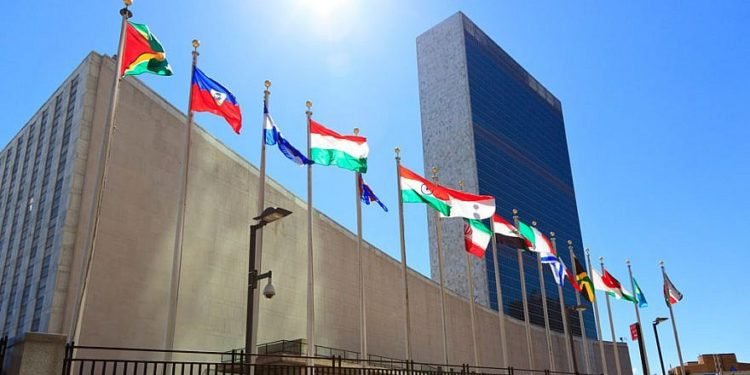The United Nations (UN) on Wednesday forecast that the world economy will shrink by 3.2% in 2020 as a result of Covid-19 pandemic. This is the sharpest contraction since the Great Depression in the 1930s.
According to the report by the UN, the impact of the coronavirus pandemic is expected to cancel nearly all gains of the last four years in the global economy at a cost of nearly $8.5 trillion over the next two years.
This new forecast of 3.2% decline is a sharp increase, compared to its January projections, before COVID-19 became a pandemic. In January, the U.N. had forecasted a modest acceleration in growth of 2.5% in 2020.
This 3.2% decline projection by the UN is slightly higher than the 3% plunge forecast by the International Monetary Fund in mid-April for 2020
This revision of the impact of the Covid-19 crisis on the global economy, according to U.N. chief economist Elliott Harris in a news conference while launching the report is because things “has changed drastically” since then, with the pandemic’s death toll climbing toward 300,000.
“With the large-scale restrictions of economic activities and heightened uncertainties, the global economy has come to a virtual standstill in the second quarter of 2020,” he said. “We are now facing the grim reality of a severe recession of a magnitude not seen since the Great Depression” he said.
According to the report, there has been disruption to the supply chains, depressing consumer demand and millions of people are out of work. with nearly 90 per cent of the world economy under some form of lock-down. However, some countries are beginning to ease lockdown measures.
- Read also; COVID-19 Impact: 33.3 Million Americans now Unemployed
- Coronavirus Update – Russian President’s Spokesperson Test Positive; Nigeria Records 146 new cases .
These disruptions could result in 15% contraction in world trade in 2020 according to the UN World Economic Situation and Prospects report.
For 2021, the U.N. forecast 3.4% economic growth in developed economies and 5.3% in developing countries all things being equal. However, there could be slight contraction of the global economy in 2021 by a further 0.5%, if a new wave of infections and lockdowns continues in the third quarter, which ends Sept. 30..
The report said the pandemic is “exacerbating poverty and inequality,” with an estimated 34.3 million people likely to fall below the extreme poverty line of $1.90 a day in 2020 with 56% of them in Africa.
It said an additional 130 million people may join the ranks of people living in extreme poverty by 2030.
The worst case scenario, would have an additional 160 million people living in poverty by 2030, Harris, the U.N. assistant secretary-general for economic development, said.
According to Harris, “in any event, unless there are major breakthroughs in vaccine development, economic activities will remain significantly limited, and any fiscal measure will be unlikely to be fully effective in stimulating investment and growth,”
While talking about Covid-19 relief stimulus and policies by countries, Harris said that Fiscal stimulus has been unequal across the world, According to him, many developing countries have been unable to introduce sufficiently large packages due to massive declines in foreign exchange flows from export, tourism, remittances from diaspora and new borrowing,
He said that “how quickly and effectively the international community will be able to contain the public health and socio-economic fallout of the pandemic will determine whether and how soon the world can return to pre-crisis levels of economic activities,”
Written by
Ifunanya Ikueze






















































